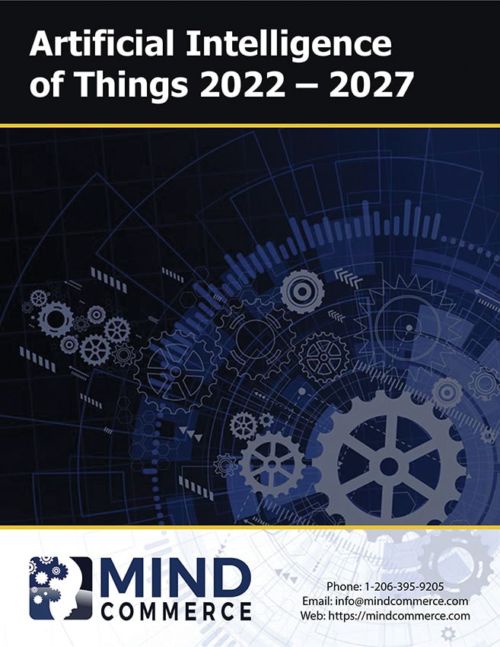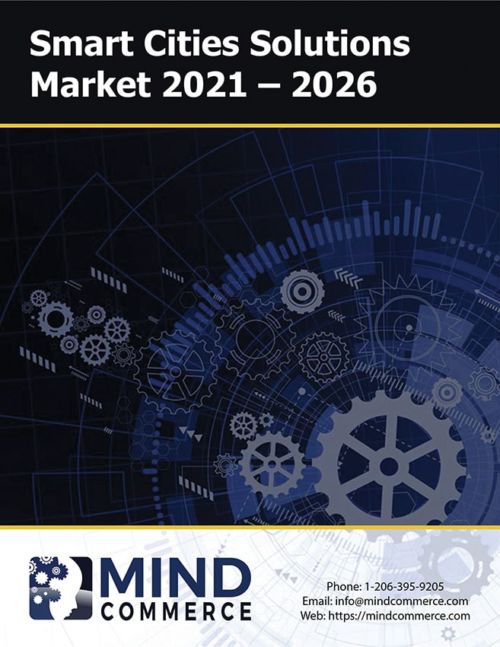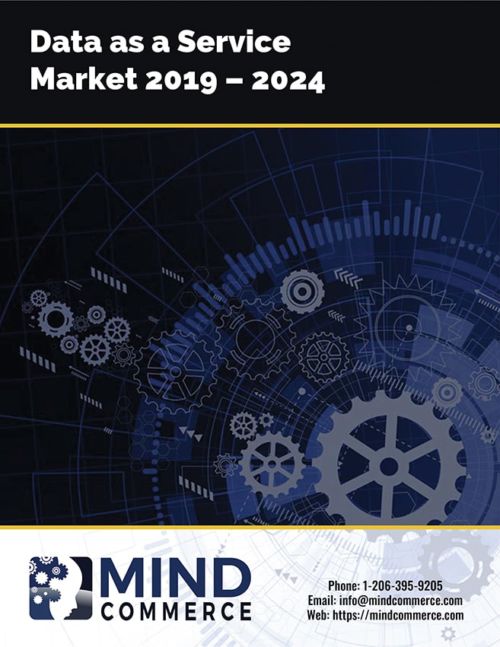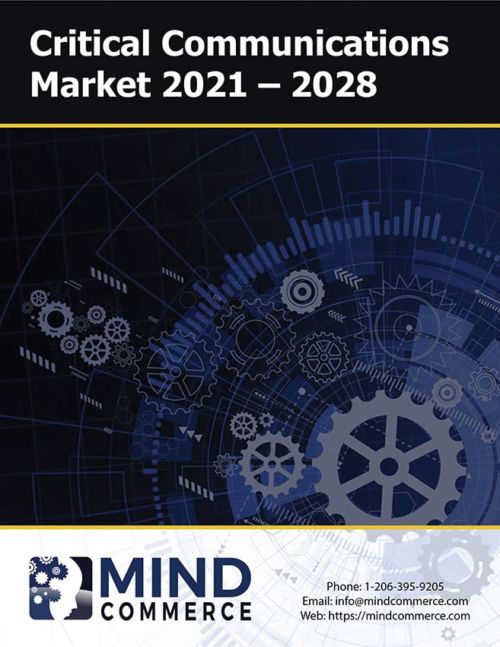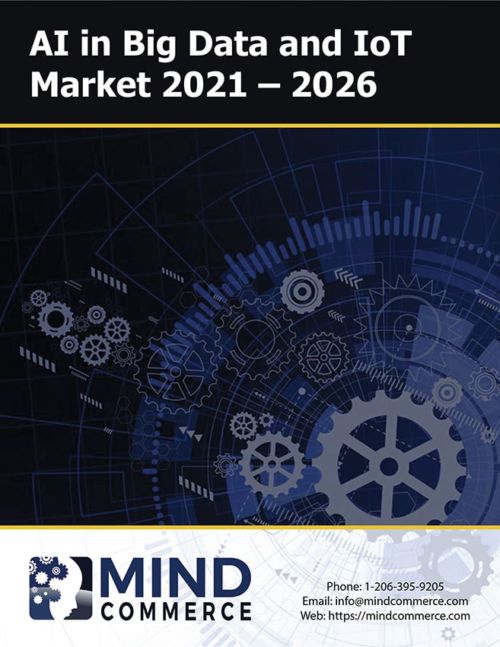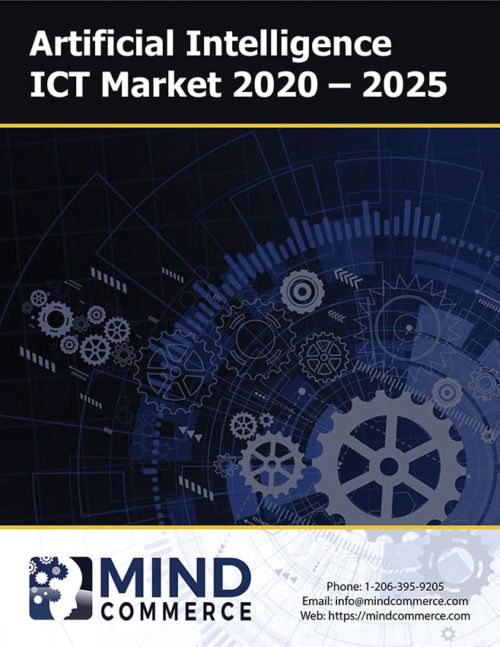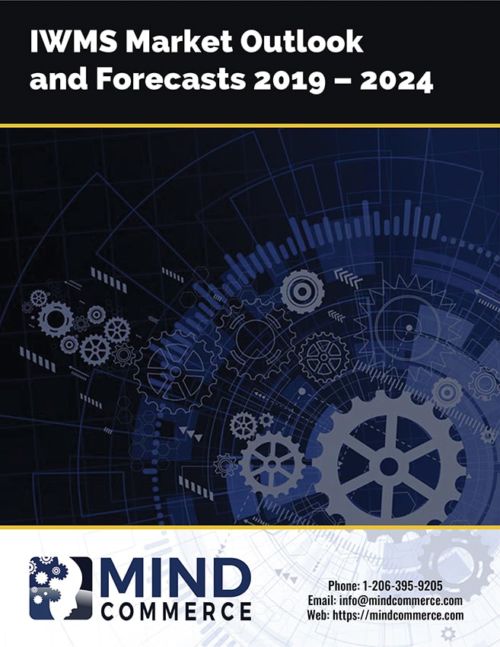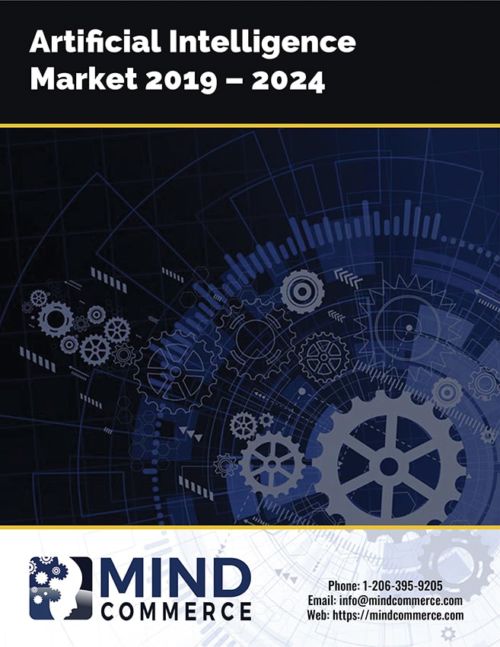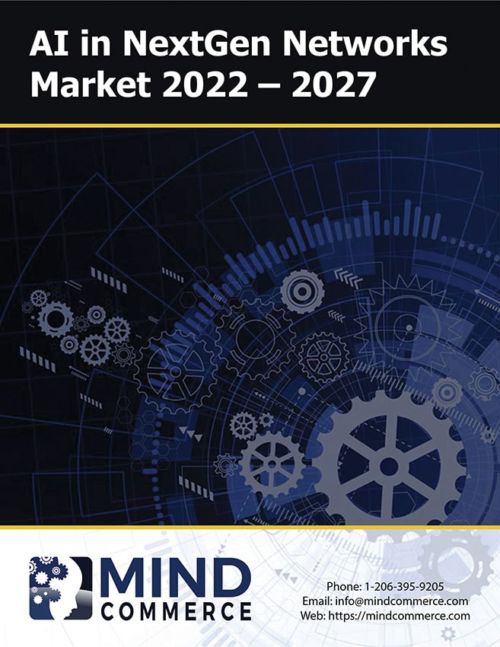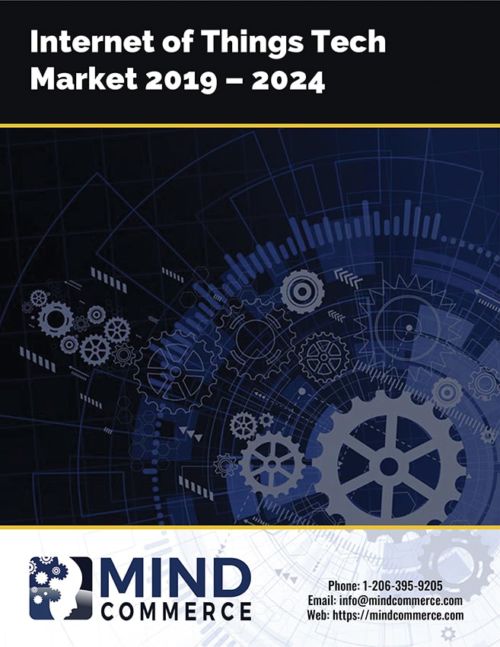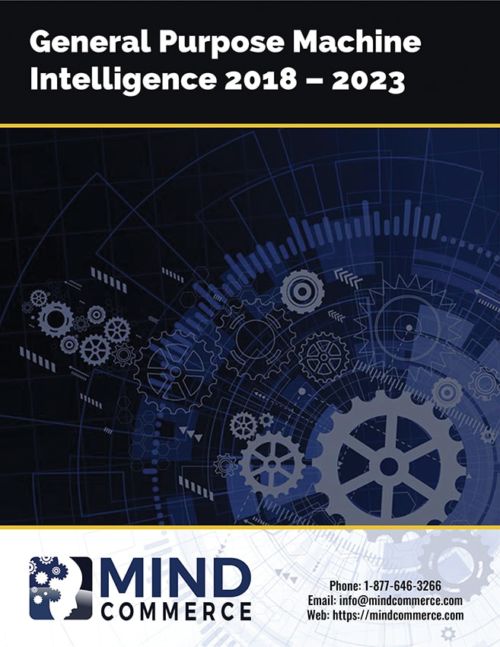
 The AI segment is currently very fragmented, characterized with most companies focusing on silo approaches to solutions. Longer term, Mind Commerce sees many solutions involving multiple AI types as well as integration across other key areas such as the Internet of Things (IoT) and data analytics.
The AI segment is currently very fragmented, characterized with most companies focusing on silo approaches to solutions. Longer term, Mind Commerce sees many solutions involving multiple AI types as well as integration across other key areas such as the Internet of Things (IoT) and data analytics.
Mind Commerce AI reports focus on solutions to specific problems, AI support of various apps and services, as well as AI integration with other technologies such as Big Data, IoT, and Blockchain. A sampling of Mind Commerce AI reports includes:
- Artificial Intelligence Market by Platforms, Components, Deployment Mode, Applications, and Industry Verticals
- Artificial Intelligence Impact on Public Safety, Security and Privacy
- Personal Artificial Intelligence and Robotics Market Outlook and Forecasts
- Virtual Personal Assistants: Artificial Intelligence Enabled Smart Advisors and Intelligent Agent Market Outlook and Forecasts
- Artificial Intelligence Convergence: AI in Analytics, Communications, Computing, IoT, Public Safety, Robotics, and Security
- AI in Internet of Things (IoT), Data Analytics, and Virtual Private Assistants
- Artificial Intelligence in Big Data Analytics and IoT: Market for Data Capture, Information and Decision Support Services
- Market for Artificial Intelligence in Internet of Things (IoT) Security and Fraud Prevention
- Chatbots and Artificial Intelligence: Market Assessment, Application Analysis, and Forecasts
AI in Cybersecurity
 There are many potential use cases for AI within the cybersecurity domain. For example, AI may be used in IoT to bolster security, safeguard assets, and reduce fraud.
There are many potential use cases for AI within the cybersecurity domain. For example, AI may be used in IoT to bolster security, safeguard assets, and reduce fraud.
There are varying opinions about security in IoT. For example, some companies favor a distributed (decentralized) approach whereas other companies believe a more centralized approach leveraging strictly centralized cloud architecture makes more sense.
Mind Commerce sees no way in which signature based security solutions will work with IoT in an edge computing environment for a variety of reasons including the limitation on throughput of communications between distributed end-points and centralized cloud.
AI is a must for IoT in an edge computing environment
AI has various advantages including the fact that it is a more lightweight application (because it does not require all the data that comes with tracking digital signatures/code for known viruses), more effective in identifying malware, easier and less costly to maintain as there is no need to constantly identify new malware code. This is all because AI based security is looking for malicious behaviors rather than known malicious code.
Longer term, AI will move beyond fraud prevention and prevention of malicious acts as AI will be used to feed advanced analytics and decision making. This will be especially true in IoT solutions involving real-time data as AI will be used to make determinations for autonomous actions.
An example of a Mind Commerce AI report covering cybersecurity is Artificial Intelligence Convergence: AI in Analytics, Communications, Computing, IoT, Public Safety, Robotics, and Security
AI in Industry Verticals
Consumer-facing apps and services supported by AI are many and varied including chatbots and Virtual Personal Assistants (VPA) in support of customer care and lifestyle enhancement. The automobile industry is another example in which, AI is becoming increasingly useful, both in the near-term for solutions such as inclusion of VPAs, and longer term use cases such as AI support of self-driving vehicles.
Another consumer market area in which AI will be integrated is wearable technology. As wearables become more main stream, and integrate into everyday life with increasing dependency, there will be a need for integration with Artificial Intelligence, Big Data, and Analytics.
AI in Enterprise
AI is expected to have a big impact on data management. However, the impact goes well beyond data management as we anticipate that these technologies will increasingly become part of every network, device, application, and service.
One area important to enterprise will be Intelligent Decision Support Systems (IDSS), which are a form of Expert System which utilize AI to optimize decision making. IDSS will be used in many fields including agriculture, medicine, urban development, and other areas. IDSS will also be used in policy making and strategy at the highest levels of enterprise as well as governmental organizations.
Future of Artificial Intelligence
Evolution from Weak AI to Strong AI
Weak AI systems and solutions are characterized as those that are narrowly focused on typically one area. The aforementioned VPA technology is a good example. In contrast, Strong AI is getting much closer to sentient beings such as humans, and have traits of self-awareness. In other words, Strong AI is more like human-level intelligence.
AI systems will evolve from monolithic, single-purpose systems to more integrated AI systems that singularly, or in the case of multiple connected systems, collectively represent Strong AI. The use of Strong AI systems to provide orchestration and overall governance of lesser AI modules will enable intelligence that has broader contextual decision making capabilities.
Artificial General Intelligence
While many forms of AI today are oriented towards one type of information or means of gathering and interpreting data, General AI pertains to those systems that have the ability to learn from many different environments. In other words, Artificial General Intelligence performs more like a human being in terms of ability to make use of inputs and data which normal AI would ignore as disparate and seemingly insignificant.
One of the challenges of creating AI which can think like a human is that machines do not behave in the same ways or share the same sense of values. These traits are part of the human condition that has bearing on the decision process. Another challenge is creating machines that have the human ability to make inferences and judgements based on limited information and nuance.
For example, humans can apply experiential learning in ways that computers currently cannot. In addition, machines find certain tasks very difficult that are remarkably easy for humans, such as identifying the face of an old friend that has not been seen for years.
Superintelligence
One of the potential precursors to human evolution is the supplementation of biological matter with silicon. Stated differently, humans may be augmented with computing and artificial intelligence allowing for the best of both worlds in a sense – fast processing power with human cognition including unique human traits such as intuition.
Superintelligence is not guaranteed or preordained based on current advancements of AI. However, many leading experts believe it is certainly possible, and may take various shapes and forms such as computer-brain integration. Those that profess the advantages of such integration suggest that there will be cognitive enhancement for both human and machine, leading to amplification of decision making for both organic and silicon systems.
AI, Robotics, and Transhumanism
 Some people hypothesize that human beings will evolve in a manner that includes augmentation via robotics and AI. The term Transhumanism refers to this potential stage of human evolution, which could ultimately lead towards physiological changes including achievement of substantially greater intelligence.
Some people hypothesize that human beings will evolve in a manner that includes augmentation via robotics and AI. The term Transhumanism refers to this potential stage of human evolution, which could ultimately lead towards physiological changes including achievement of substantially greater intelligence.
There are obvious moral issues associated with Transhumanism, which Mind Commerce shall not touch. However, it is important to note that this one potential direction of society as a whole and also a potentially highly disruptive development for businesses of all types.
An example of a Mind Commerce AI report that covers human augmentation is Human Augmentation in Healthcare: Bionics, Organ and Body Part Replacement, Exoskeletons, and Robotics
AI and Quantum Computing
 Quantum Computing represents a new type of computation that relies upon quantum mechanics principles such as superposition. In contrast to binary digital electronic computers, quantum computing machines will be able to take advantage of quantum bits (qubits), which like a classical bit has two states of existence, but unlike a traditional bit, may be in both states simultaneously.
Quantum Computing represents a new type of computation that relies upon quantum mechanics principles such as superposition. In contrast to binary digital electronic computers, quantum computing machines will be able to take advantage of quantum bits (qubits), which like a classical bit has two states of existence, but unlike a traditional bit, may be in both states simultaneously.
The major implication for quantum computing is that processing is much faster due to simultaneous processing. The commercial introduction of quantum computers will have far reaching impacts, disrupting entire industries. The combination of AI with quantum computing will lead to an even bigger impact as the former provides human-like cognition and the latter provides ultra-fast processing.
An example of a Mind Commerce report that covers Quantum Computing is Quantum Computing: Technologies, Companies, Solutions, Market Outlook and Forecasts


